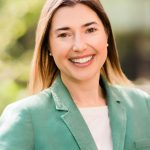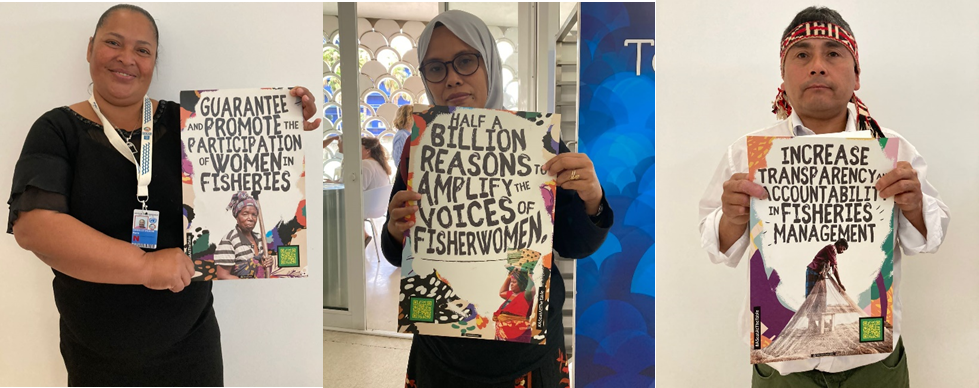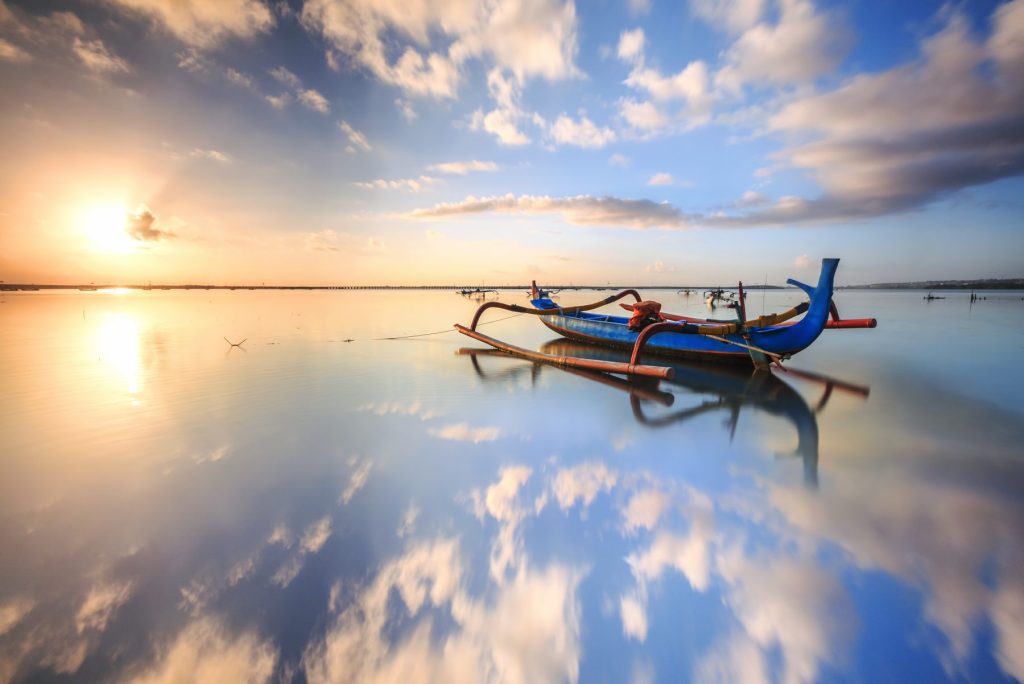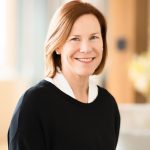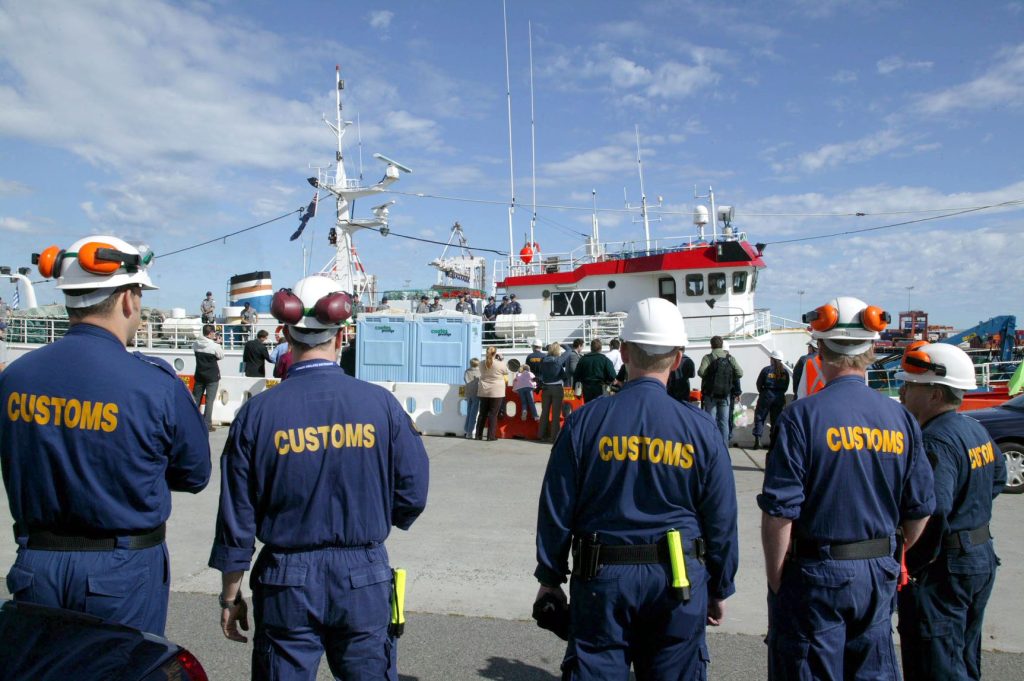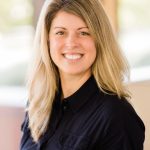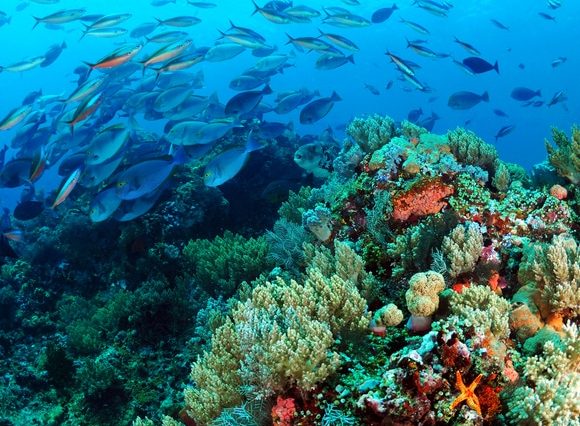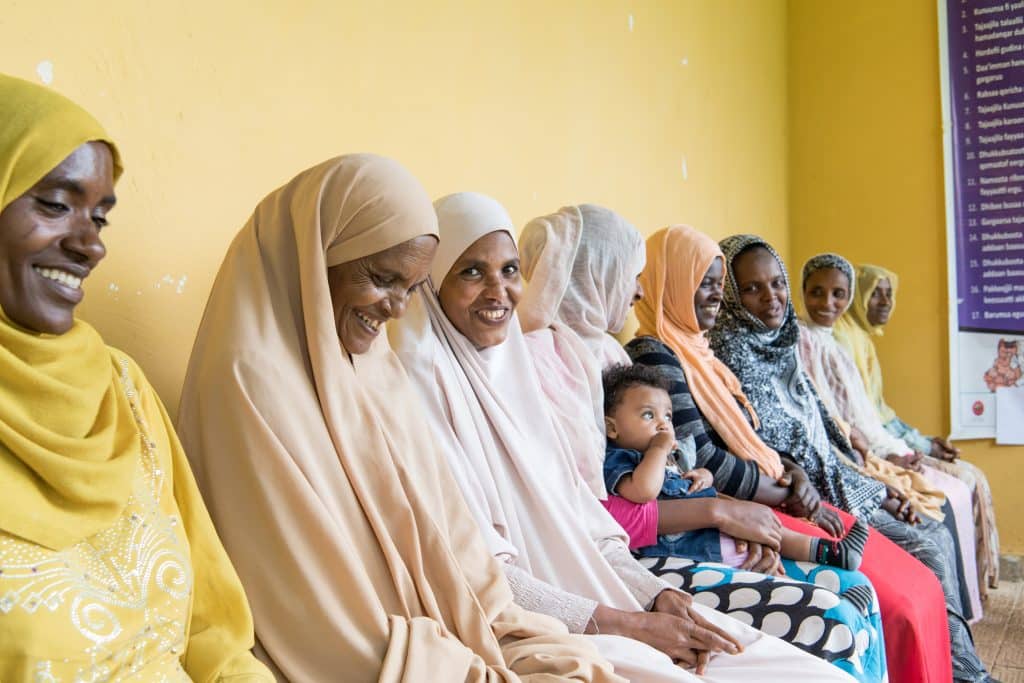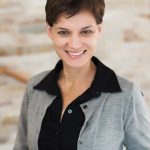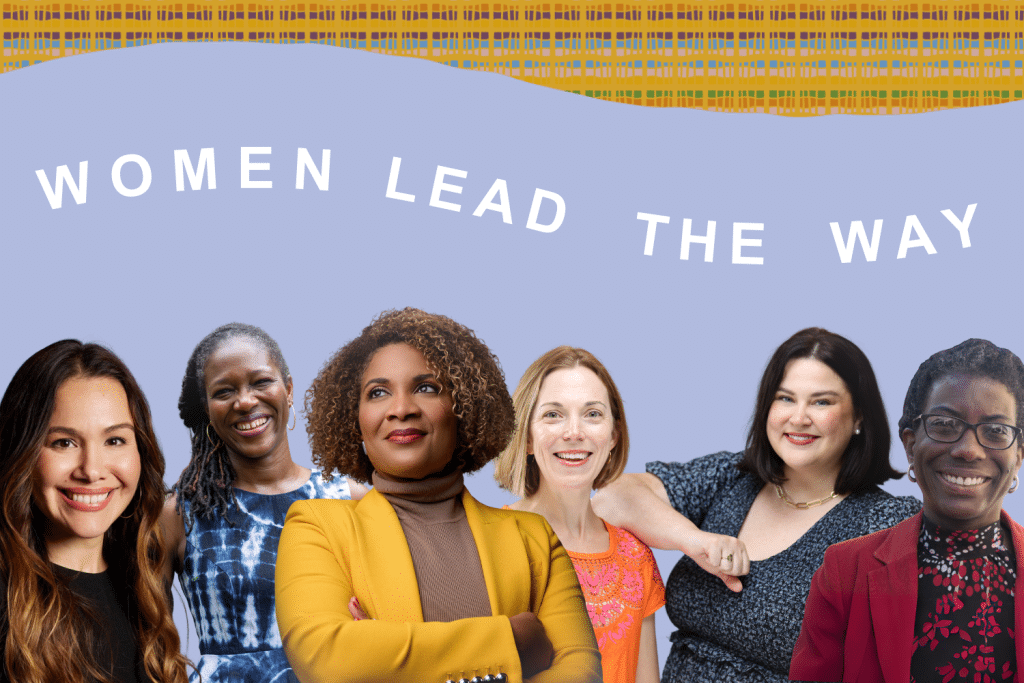“At the Packard Foundation, we believe justice, equity and diversity are absolutely essential for achieving our ocean conservation goals.”
Julie Packard
Executive director, Monterey Bay Aquarium
Board member, The David and Lucile Packard Foundation
June 2022. More than 6,000 people. Twenty-four heads of state and government. Over two thousand organizations. The second United Nations Ocean Conference in Lisbon, Portugal brought us all together with one common goal: protecting our ocean.
On June 15th, I sat on a plane from California to Lisbon’s Humberto Delgado Airport. I shifted in my seat to gaze over the Atlantic Ocean from above, reflecting on its beauty and power. I knew that this conference would be a huge opportunity for the ocean community to move forward on collective action.
I also knew that it was more than just action we needed – we are desperately in need of equity. Last year, we dubbed 2021 “the Year of Ocean Equity.” We know Black, Indigenous and People of Color, low-income communities, and other marginalized groups bear the brunt of inequities across the board, including when it comes to ocean protection. This results in negative effects on the environment and human health, loss of livelihoods, limited financial opportunities for vulnerable groups and challenges to nutritional and food security.
At the conference, we saw this in action. At the Our Ocean Future event, I scribbled in my notebook the words of Dr. Asha de Vos: “Talent is equally distributed, but opportunities are not.”
But it doesn’t have to be like this. We must listen to the people most affected by climate change and ocean health and follow their lead.
Here’s what surprised Eglé Flores, the Packard Foundation’s Country Advisor for Chile and Mexico Marine Strategies:
As she explained, she was “surprised by how important and big the delegations of small-scale fishers and Indigenous Peoples have been outside the venue, and the relevant information, solutions and ideas that they have to contribute to the conference, and how important it is for organizations and foundations such as ours to promote a more inclusive and more vibrant participation of these key stakeholders.”
As the conference continued, I noticed that things were already changing compared to similar events I’ve attended in the past. Here, Meg Caldwell, our Deputy Director for Ocean, shares her impressions of role reversal and what it means for equity and decision making:
As Meg explained above, “The youth, the local community representatives, the small-scale fishers, were the ones talking, and delivering their message to the government representatives. And that was a powerful experience for all of us, to have the roles reversed, where it wasn’t the government folks telling everyone what they’re going to be doing, but it was the local communities – those who are experiencing the biggest impacts from climate change, overfishing, destructive illegal, unreported, unregulated (IUU) fishing, deforestation of mangroves, habitat destruction, pollution – explaining their case and why it was important to them and how they need to be at the table when decisions are being made about their environment, their livelihoods, their food security. That was a beautiful thing.”
— Meg Caldwell (@CaldwellMegc) June 30, 2022
✨ Scenes from the #UNOceanConference event with @ICCAConsortium ✨
🌊 We must center Indigenous Peoples and local communities to protect our ocean for all of us 🌊#OceanMonth pic.twitter.com/vBm7Wkq3cQ
— Packard Foundation (@PackardFdn) June 29, 2022
At the Packard Foundation, we are committed to including coastal communities that are disproportionately impacted by climate change and other threats to ocean health in conversations and decision-making about how to manage coastal and marine ecosystems.
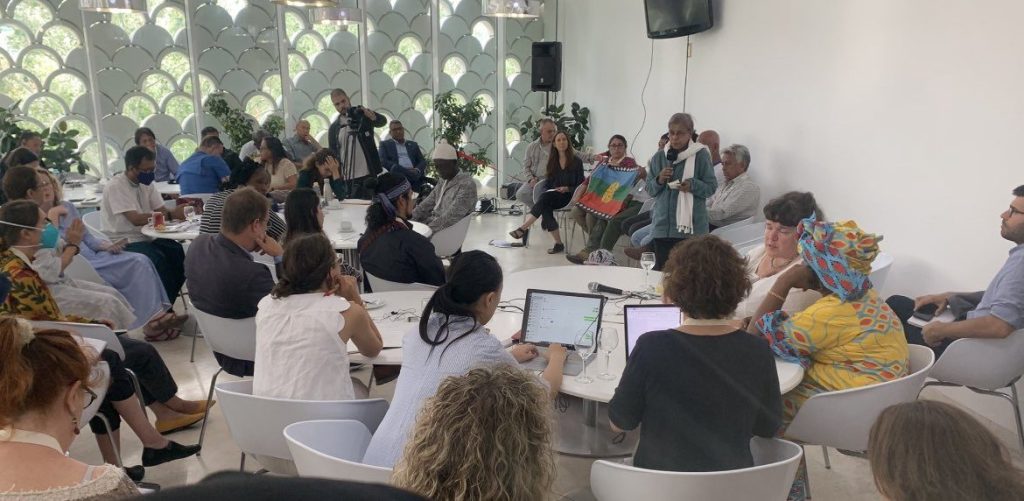
In addition to hearing directly from those most impacted, there were several other key takeaways from the conference, from the creation of the Lisbon Declaration explaining science-based actions to protect the ocean, to several new Marine Protected Areas that can directly benefit local communities, to progress on a deep-sea mining moratorium to protect the ocean seafloor from large-scale harm due to mineral extraction.
Additionally, and importantly, several big government announcements highlighted the connection between human rights, bringing diverse voices into ocean conversations, and a commitment to solutions that support the well-being of people and the environment:
Thank you, @POTUS! US policy to curb illegal, unregulated & unreported global fishing and labor abuses will benefit sustainably managed US fisheries, our living ocean, and workers who suffer inhumane labor conditions at sea. https://t.co/Z0y5XB0IrY @StateDept @NOAA #IUUfishing
— Julie Packard (@juliepackard) June 28, 2022
As Heather Ludemann, the Foundation’s U.S. Marine Program Officer, explained, “The announcement around illegal, unreported and unregulated (IUU) fishing and the U.S.’ commitment to updating our definition of IUU fishing to include human rights and labor and to amplify the importance that IUU fishing is not only an environmental issue, but it is also a human rights issue. Our grantee partners have been working on this for many years, so it was exciting to see this progress.”
The UN Ocean Conference made it clear: there is much to do. And I was grateful for the opportunity to listen. As the Packard Foundation carries the momentum of the U.N. Ocean Conference forward, we will focus on ensuring that communities that are most impacted move from side conversations to center stage.
Deep gratitude + inspiration from #UNOceanConference2022 + to everyone working to protect the ocean for all of us.
My takeaway quote: “Talent is evenly distributed, opportunities are not.” –@ashadevos
Fired up about the momentum, collaborations + progress-much more is needed. pic.twitter.com/j4Vvefijaw
— Nicole Kravec (she/her) (@nickikravec) July 1, 2022
